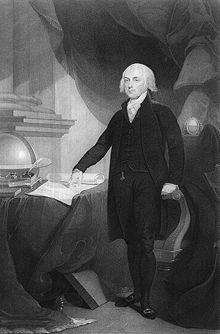
Factions are groups of citizens who unite under a common interest or goal, and James Madison argues in Federalist #10 that the formation of factions is the natural behavior of men. Whether the group is a majority or minority faction, the goals they pursue may be counter to the good of other factions, or society as a whole. Differences in political ideology and religious views can break people into factions, but Madison suggests that the most common reason, constituting the greatest of factions, is the uneven accumulation of property. He proposes that men are inherently unequal in their faculties and abilities, and this naturally leads to an unequal distribution of property and wealth. There are two methods of controlling factions according to Madison, eliminating their origins or managing their outcomes. As liberty is what allows men to form factions in the first place, removing the origin is anathema to Madison, because that is an even greater evil than the problems caused by factions. He proposes instead a governmental solution to limit the ability of interest groups to disrupt the public good and national interest.
To control the effects of factions, Madison urges the adoption of a Republican style of government rather than a pure Democracy. A pure Democracy can easily control the minority faction, but the tyranny of the majority can overwhelm minority rights. A Republic, on the other hand, can minimize this problem by allowing the selection of wise citizens as representatives of regional populations. Popularly elected individuals are likely to be more informed about the best ways to manage the public wellbeing than the masses themselves are, according to Madison. If a representative is disloyal to the interests of his constituents, he can be removed from office at the end of his term by a popular vote. Also, a Republic can govern a greater domain, and the larger the area that is governed the more effective, because each representative will be selected by a larger group of people, which makes it more difficult for undeserving citizens to be elected. The effects of a faction in one part of the Republic cannot overwhelm the interests of the whole, if the domain of the Republic is great enough, and partitioned so as to dilute factions, such that it prevents factions with similar interests from coordinating, where they are far removed from each other geographically and culturally.
The evils of factions may be controlled by the formation of a large Republic, but the additional power invested in federal authority would need to be controlled as well. In Federalist #51, Madison suggests that government can control itself better, if power is balanced amongst competing interests, so that each performs a check on the other. Not only would the proposed federal system be broken into legislative, executive, and judicial branches, the legislative would be bicameral, with each house’s roles as unconnected as possible by different responsibilities and term lengths. By splitting authority between separate departments with shared power, the desires of one branch could be countered by the desires of another. By incorporating inefficiency into government it could stave off corruption.
The English Philosopher John Locke helped to inspire the liberal sentiments and ideas of early Americans, and he suggests an implied social contract is the justification for the acceptance of government. Like Madison, Locke argues that people have a right to the property that they acquire via their own labor. The need for protection of private property encourages a social contract in which one gives up the right to take from others what they have earned, in exchange for enforcement of their own property rights. This trade-off between freedom and security complements an argument that Madison makes, about the threat that those without property pose to those with it, due to the large differences in size between the factions of the have-nots and the haves. Locke also suggests dispersing power between different parts of government in order to limit the abuse of that power. This is echoed within the case that Madison makes for the separation of powers in the proposed Federalist structure.
Since the Constitution was adopted it has withstood the test of time, and Madison’s and Locke’s ideas deserve a lot of credit for that. However, attempts to compromise the separation of federal powers using political parties with shared ideologies began right away with Alexander Hamilton, who is-like it or not-another one of our Founding Fathers. Consolidation of authority into the executive branch has recently become a major concern to many, but it has been justified by the belief that it is needed to protect against new threats like terrorism. I think this centralization of power is a worrying trend, and has the potential to restrict liberty and makes arbitrary government action more likely. I agree with Madison’s sentiments that ambitious men will need to have a check on them, to prevent this minority faction from using the power of the state to enrich themselves at the expense of the public good. However, we as Americans need to aware of our history, and recognize that much of it is nuanced, contentious, hypocritical, novel, and incredibly philosophical, such that we tend to mythologize it and glorify, without properly examining its implications within our own experience. Consider Madison and the problem of factions the next time you tell someone which political party you belong to.
Jared Roy Endicott


